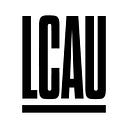Mexico CitySpace: Imagining the urban future
The School of Architecture and Planning (SA+P) has a long history of collaborative research and development focused on Mexico, with faculty demonstrating a committed, long-term interest in tackling large-scale metropolitan challenges. The complexity and interconnected nature of urban issues require collaborations that draw on practical expertise and research from multiple disciplines. Current SA+P research spans diverse topics, from equitable resilience, sustainable urbanization, autonomous mobility, and post-disaster reconstruction to the development of quality affordable housing and workplaces, and developing new frameworks for urban growth and mobility. Through a new collaboration with Grupo Mota-Engil, the Norman B. Leventhal Center for Advanced Urbanism seeks to explore the future of the Mexico City metropolitan area and its urbanization challenges.
MIT’s Norman B. Leventhal Center for Advanced Urbanism (LCAU) in collaboration with Grupo Mota-Engil, will use Mexico City’s iconic park, Parque Aztlan, a former attraction park, embedded in both the metropolis and in one of Latin America’s largest urban forests, Bosque de Chapultepec, as a testing ground for envisioning the future of the city. Launched in January 2022, Sarah Williams, Director of the LCAU; Rafi Segal, Director of the Future Urban Collectives Lab; Onésimo Flores, Grupo Mota-Engil Mexico; and a group of researchers traveled to Mexico City to hold meetings and conduct fieldwork to prepare for the three phases of this project.
The effort is structured in three parts. The first component is a workshop during the spring semester, Future of the City Expo, Chapultepec Park, Mexico City led by Rafi Segal, in which students are exploring the vision and design for a 21st century expo-park, and will develop strategies, landscapes, objects and/or structures to be implemented in Chapultepec Park. In parallel, the LCAU will engage in workshops, discussions, and explorations with MIT faculty and key urban stakeholders to develop a strategic plan for a future Mexico CitySpace; a place for urban research, events, and conversations on the future of the city. Finally, faculty, students, and staff from MIT’s School of Architecture and Planning will design an exhibition showcasing the findings of the spring workshop and the strategic plan, in order to invite the public to engage in imagining a collective urban future for Mexico City.
